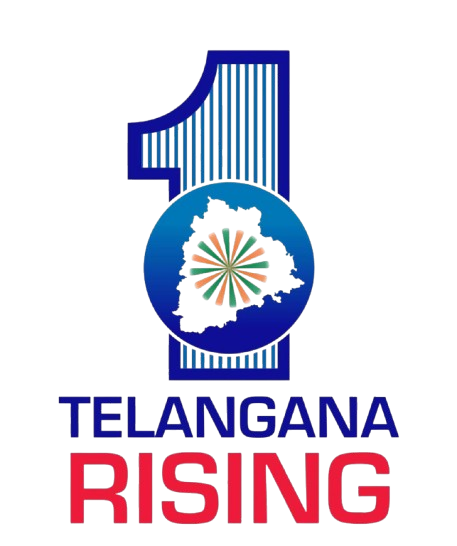B.Tech (Electronics & Communication Engineering)
Programme Educational Objectives (PEOs)
PEO 1
To educate the students in the fundamentals of various subjects in the field of Electronics and Communication Engineering which will enable them to develop core competency to be successful in their professional career.
PEO 2
To train the students to develop proficiency in the latest electronics hardware and software tools and to be able to apply this knowledge to design, conduct experiments and analyse the significance of experimental data.
PEO 3
To train the students in soft skills through effective English language communication, group discussions, develop interpersonal relationship and leadership qualities, good documentation and presentation skills needed for a successful professional career and campus placements.
PEO 4
To inculcate in students a habit of life-long learning through participation in various professional development programmes, industrial training, etc and provide encouragement to pursue higher studies/research.
Programme Specific Outcomes (PSOs)
The undergraduate students of Electronics & Communication Engineering programme will (have):
PSO 1
An ability to understand and apply the fundamentals of Engineering Mathematics and Electronics & Communication Engineering for the design and implementation of various systems in the fields of Communication, Signal Processing, VLSI, and Embedded Systems.
PSO 2
An exposure in the use of various electronics hardware and software for providing cost effective design solutions and solve analytical problems in the Electronics and Communication Engineering domain.
PSO 3
Develop necessary soft skills required to communicate and present effectively on emerging technical topics and also be able to work in a team or as an individual in their professional career.
PSO 4
Adapt to continuous learning through participation in training programmes, conference/symposia, internship, etc. in order to succeed in their higher studies/ research work.
M.Tech (Digital Systems & Computer Electronics)
Programme Educational Objectives (PEOs)
The M.Tech (Digital Systems & Computer Electronics) programme prepares graduates to:
PEO 1
Continued learning for professional advancement in the chosen field, demonstrate technical competence for analyzing, modelling, and creating engineering solutions in the thrust areas of Digital Systems and Computer Electronics.
PEO 2
Acquire the ability to identify a significant research or development problem to undertake for their project work and have capability to document the results in lucid and articulate form.
PEO 3
Develop proficiency in the modern hardware and software tools used to design and develop the Digital (VLSI) and Embedded Systems.
PEO 4
Possess interpersonal skills, team work capabilities, communication skills, leadership qualities and awareness of the social, ethical and legal responsibilities leading to lifelong learning and success in their professional career.
Programme Specific Outcomes (PSOs)
M.Tech in Digital Systems & Computer Electronics graduates will be able to:
PO 1
Independently carry out research/investigation and development work to solve practical problems related to Digital Systems and Computer Electronics.
PO 2
Write and present a substantial technical report/document in the field of Digital Systems & Computer Electronics.
PO 3
Demonstrate a degree of mastery over the areas of Digital Systems & Computer Electronics. The mastery should be at a level higher than the requirements in the bachelor's in Electronics & Communication Engineering.
PO 4
Apply appropriate techniques and modern engineering tools/software for the design and implementation of various systems in the area of Digital Systems & Computer Electronics.
PO 5
Develop self-confidence, teamwork, ethics of research, skills for lifelong learning and committed to social responsibilities.
Programme Outcomes as defined by NBA (PO)
Engineering Graduates will be able to:
1. Engineering knowledge: Apply the knowledge of mathematics, science, engineering fundamentals, and an engineering specialization to the solution of complex engineering problems.
2. Problem analysis: Identify, formulate, review research literature, and analyze complex engineering problems reaching substantiated conclusions using first principles of mathematics, natural sciences, and engineering sciences.
3. Design/development of solutions: Design solutions for complex engineering problems and design system components or processes that meet the specified needs with appropriate consideration for the public health and safety, and the cultural, societal, and environmental considerations.
4. Conduct investigations of complex problems: Use research-based knowledge and research methods including design of experiments, analysis and interpretation of data, and synthesis of the information to provide valid conclusions.
5. Modern tool usage: Create, select, and apply appropriate techniques, resources, and modern engineering and IT tools including prediction and modeling to complex engineering activities with an understanding of the limitations.
6. The engineer and society: Apply reasoning informed by the contextual knowledge to assess societal, health, safety, legal and cultural issues and the consequent responsibilities relevant to the professional engineering practice.
7. Environment and sustainability: Understand the impact of the professional engineering solutions in societal and environmental contexts, and demonstrate the knowledge of, and need for sustainable development.
8. Ethics: Apply ethical principles and commit to professional ethics and responsibilities and norms of the engineering practice.
9. Individual and team work: Function effectively as an individual, and as a member or leader in diverse teams, and in multidisciplinary settings.
10. Communication: Communicate effectively on complex engineering activities with the engineering community and with society at large, such as, being able to comprehend and write effective reports and design documentation, make effective presentations, and give and receive clear instructions.
11. Project management and finance: Demonstrate knowledge and understanding of the engineering and management principles and apply these to one’s own work, as a member and leader in a team, to manage projects and in multidisciplinary environments.
12. Life-long learning: Recognize the need for, and have the preparation and ability to engage in independent and life-long learning in the broadest context of technological change.
|

